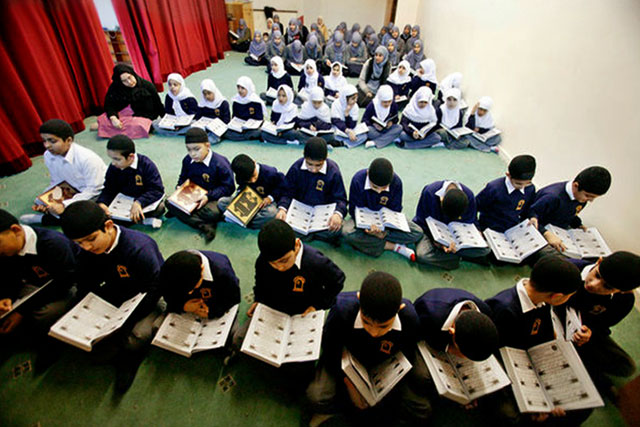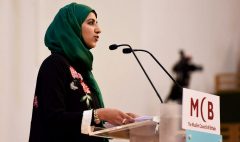Fearing Extremism and Lack of Integration: European Governments Concerns
August 22, 2016 2023-08-20 11:23Fearing Extremism and Lack of Integration: European Governments Concerns

Fearing Extremism and Lack of Integration: European Governments Concerns
Islamic Education in Europe
Faith of Our Fathers
For a snapshot of how Europeans, Muslim and non-Muslim, learn about Islam, visit the Centrum mosque near Hamburg railway station. A converted public bath, it is one of about 60 prayer spaces serving 200,000 Muslims in the city. This community’s roots are in a Turkish Islamist movement, Milli Gorus (National Vision) which flourished among German Turks before propelling a pious government to power in Turkey, in 1996, for one turbulent year. On weekdays it bustles with people seeking solace, or reading matter in German, Arabic or Turkish. On Saturdays children take Koranic lessons. Hundreds of non-Muslim adult Germans also file through this battered building: they are teachers taking courses in Islam. Ozlem Nas, a spokeswoman for the Schura, Hamburg’s biggest mosque federation, explains: “They don’t know what to do when, say, a Syrian pupil and a Chechen call each other bad Muslims.”… European governments fret over these fast-evolving combinations of local and imported influences. With so many Islamic teachers and clerics whose roots and ethos are far from western Europe, they fear for social cohesion; at worst they see fertile soil for terrorism, although the internet probably inspires more extremists than any mosque or school. They dream of a home-grown Islam that is less reliant on immigrants’ countries of origin and sits well with democracy, led by teachers and administrators trained in national universities. In the background is wariness of Saudi Arabia, which sends few migrants or imams to Europe but finances mosques and literature reflecting its puritanical Salafi school of Islam. This is sometimes—though not always—a path to extremism.
One problem with “Europeanizing” Islam is that home-grown need not mean emollient. Those Nottingham madrassas follow the relatively liberal Barelvi form of Islam, but that makes it harder to find British-schooled staff. The 50 teachers are mostly foreign-born. If they followed the stricter Deobandi School, they could hire graduates from more than 20 “seminaries” of that persuasion in Britain which boys can enter at 12 and stay in for a decade. But these copies of an Asian prototype, forged under the Raj, hardly foster integration. As European countries tackle Islamic education, each confronts its own history and long-settled deals regarding the state’s relationships with Christianity and Judaism. Belgium, for example, was created as a Catholic kingdom; it subsidizes both worship and teaching. Islam now benefits from that; more than half its imams are paid by the state. In state schools in Brussels, most children study the religion of their heritage; half select Islam.
Continue reading at: The Economist








